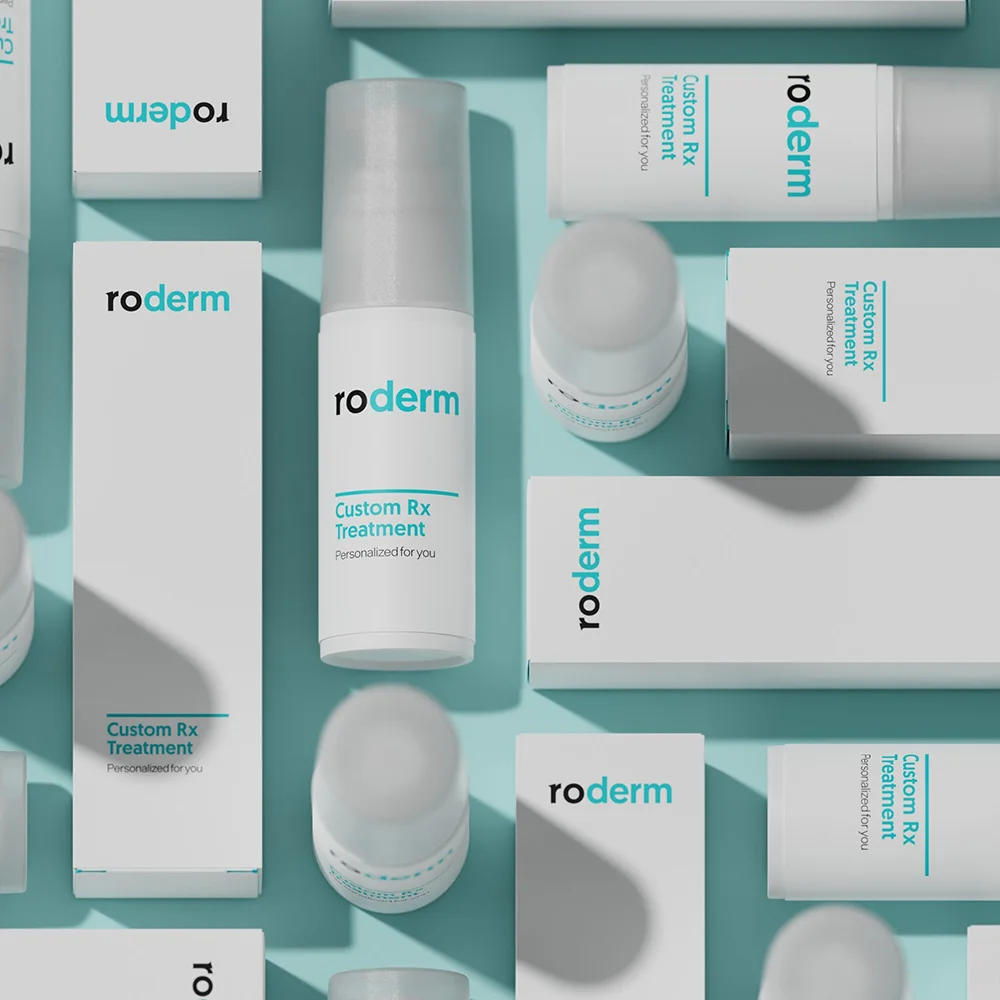Here's what we'll cover
Here's what we'll cover
Here's what we'll cover
We use "skin deep" as a negative way to say something is superficial, but that's doing skin—the largest organ of your body—a great disservice. There's nothing simple about your skin. Though it may sit closer to the outside world than your heart or lungs, this complex organ is deeply connected to the core of your health—or lack thereof.
Vitamins and nutrients for healthy skin
Dry skin may just be a temporary effect of changing weather, but it can also indicate nutritional imbalance and point to a lack of enough healthy fats in the diet. Certain vitamins and minerals play a hand in keeping your skin hydrated, elastic, and full. Others have a direct hand in wound healing or protecting your skin from sun damage and photoaging. Changes in your skin or complexion may be a visual clue of an underlying vitamin deficiency.
There are, of course, skin conditions that need attention from experts such as dermatologists. But one of the foundations for healthy skin, just like other systems of your body, is a healthy diet. Getting all the essential vitamins is important since deficiencies can cause or exacerbate skin issues.
It's important to note, though, that just because you eat certain foods, that doesn’t mean you'll see the same results as participants in a particular study. A healthy diet is a great foundation, but if you suspect there's an underlying issue causing your skin issues, your healthcare provider can help you get to the root of what nutrients you may be lacking.
9 best vitamins and nutrients for healthy skin
Vitamin D
Most of us know by now that our bodies can create vitamin D from direct sunlight that hits our skin, earning this nutrient the nickname "the sunshine vitamin." But it's less well-known that this process comes full-circle, benefitting the skin as well. Your body uses vitamin D to create new, specialized cells, including skin cells (Nair, 2012).
This isn't an excuse to bask in UV rays without sunscreen, though. Medical experts do not recommend any time spent in direct sunlight without sunscreen protection, despite its involvement in vitamin D creation.
How to get it: The two forms of vitamin D are found in different foods. Vitamin D2 is mostly in plant sources and fortified foods, and D3 is mostly in meat and dairy products. Increasing your intake of oily fish (such as salmon, mackerel, sardines, and herring), beef liver, egg yolks, and mushrooms will help you get more of the Ds into your diet. You can also turn to fortified foods as sources of the vitamins, which may be especially helpful for vegetarians and vegans. A supplement may be a good addition to a diet rich in these foods since approximately 35% of adults in the United States are vitamin D deficient (Sizar, 2021).
Vitamin C
This well-known vitamin offers perhaps the trendiest benefit for your skin on this list—it supports collagen production. Collagen and elastin fibers give skin that much-coveted supple structure, giving your skin a youthful appearance. This internal scaffolding naturally breaks down as we age, but vitamin C can help counter this loss to some extent. Vitamin C plays an essential role in the production of collagen. But, because of its antioxidant properties, it also helps protect our skin from photodamage caused by UV rays, which may, in turn, help prevent skin cancer (Pullar, 2017).
How to get it: You can boost your dietary intake of vitamin C through citrus fruits and other select fruits and vegetables. Vitamin C deficiency is rare in the United States; however, you can support your levels with supplements. There are also plenty of skincare products with formulations that include vitamin C to help promote collagen synthesis, such as anti-aging creams.
Vitamin E
Protection from sun damage is a common theme among the top vitamins for the skin, and vitamin E is no exception. This phytonutrient (plant chemical) may help protect your skin from damage caused by ultraviolet (UV). Research suggests that vitamin E may have both anti-tumor and photoprotective properties, but some of its biggest benefits in dermatology come from its status as a "free radical scavenger" (Keen, 2016).
Our bodies naturally produce free radicals, and they need to be in balance with antioxidants to avoid causing cellular damage; free radicals can also lead to inflammation. Vitamin E may contribute to protection against skin cancer and wound healing (Keen, 2016).
How to get it: Nuts, spinach, whole grains, olive oil, and sunflower oil are particularly rich sources of vitamin E. Your body needs fat to absorb this vitamin properly, and combining sources (such as olive oil on a spinach salad or grains dressed with sunflower oil) can help. You can also take supplements, though meeting your needs through diet alone is not difficult, especially since vitamin E is added to some fortified foods. You'll also find vitamin E in many anti-aging skincare products. It's generally added along with vitamin C since they may be more effective together (Souyoul, 2018).
Vitamin K
Vitamins K1 (phylloquinone) and K2 (menaquinones) do more than contribute to your heart and bone health. They support collagen fiber formation and may improve wound healing. Vitamin K has antioxidant properties that may help with wound healing and overall skin health (Pazyar, 2019).
How to get it: You'll need to go to separate food sources for your vitamin K1 and vitamin K2 needs. Leafy greens such as spinach, broccoli, asparagus, soybeans, red or green grapes, and yogurt are all good sources of vitamin K1. You can up your dietary intake of vitamin K2 with chicken breast, ground beef, egg yolks, and hard and soft cheeses. However, the most potent source is natto, a type of fermented soy (Schwalfenberg, 2017). If you are taking blood thinners, speak with your healthcare provider before taking a vitamin K supplement, as it can make your blood thinners less effective.
Vitamin A
Retinol is the current golden child of skincare, but many people don't know that retinol is a form of vitamin A. When applied topically, this vitamin A may reduce the appearance of fine lines and wrinkles by supporting the compounds that make up your skin’s structure and boosting collagen production (Zasada, 2020). When consumed, vitamin A can also act as an antioxidant, preventing free radical damage, which can lead to the signs of aging (Chea 2021; Cao, 2020).
How to get it: You can get vitamin A through dark leafy greens, broccoli, avocado, squashes, sweet potatoes, and carrots. Animal sources include eggs, beef liver, and milk. You can find dietary supplements for vitamin A, but it's also extremely common in skincare products as a topical cream or serum.
Healthy fats
Studies suggest that some types of healthy fats, like omega-3 fatty acids, have anti-inflammatory properties, which can help keep your skin healthy (Balić, 2020). In addition, the outermost layer of skin needs fats to maintain your skin’s moisture—in general, dry skin is unhealthy skin (Harwood, 2021).
How to get it: Fatty fish such as salmon, mackerel, herring, and sardines are particularly potent sources of two types of omega-3s. Vegans and vegetarians can reach for nuts and seeds, which boast alpha-linolenic acid (ALA), another of the omega-3 fatty acids. (Novotny, 2021). Some sources of healthy dietary fats, like avocado, are particularly helpful since they combine multiple skin-boosting nutrients. Avocados, specifically, are rich in healthy fats and vitamins A and E, two vitamins with antioxidant properties that may help protect your skin from free radical damage (Cao, 2020).
Protein
Proteins are large chains of amino acids that are typically thought of in terms of muscle. However, collagen, keratin, and elastin are also important proteins that make up our hair, skin, and nails. Some clinical trials suggest that people with a higher protein diet may have less severe skin issues (Garg, 2019). Other studies propose that taking oral collagen peptides (smaller chains of amino acids) may improve skin health, hydration, and elasticity (Bolke, 2019).
How to get it: Omnivores can get plenty of protein through meats such as pork, chicken, and beef, dairy products, and eggs. People on a plant-based diet can get protein through pumpkin seeds, brown rice, peas, legumes, and soy products.
Zinc
Zinc has both anti-inflammatory and antioxidant properties, and it plays a significant role in wound healing. Deficiencies are associated with skin problems such as lesions and impaired wound healing, which is why getting enough of this nutrient is crucial (Souyoul, 2018; Rabinovich, 2021).
But that's far from the limits of this mighty mineral. Zinc has been shown to help with a wide variety of dermatological issues, and getting enough may help get and maintain clear skin. It may help with infections including warts, pigment issues such as melasma, and inflammatory issues such as acne and rosacea (Gupta, 2014).
How to get it: Turn to meat, shellfish, and legumes, such as chickpeas and lentils, for quality food sources of zinc. The mineral is also found in nuts and seeds, dairy, eggs, and whole grains.
Selenium
Selenium is mostly known for benefitting your thyroid and metabolic function, but it's also important for the overall health of your skin. This trace mineral is also an antioxidant and, as such, can help fight oxidative stress caused by free radicals (Souyoul, 2018).
As we age, we also lose some of our inherent antioxidant mechanisms, which accelerates the imbalance between free radicals and antioxidants. But we can replace some of them, potentially bringing antioxidants and free radicals back into equilibrium, through the dietary intake of food sources of antioxidants, such as selenium-rich foods (Addor, 2017; Petruk, 2018).
How to get it: Meat and eggs are excellent sources of selenium, and you can find this mineral in ham, pork, beef, turkey, and in certain types of fish like yellowfin tuna. Dairy products like cottage cheese also contribute to your daily intake. But vegans and vegetarians can meet their needs with Brazil nuts, a potent food source of selenium.
DISCLAIMER
If you have any medical questions or concerns, please talk to your healthcare provider. The articles on Health Guide are underpinned by peer-reviewed research and information drawn from medical societies and governmental agencies. However, they are not a substitute for professional medical advice, diagnosis, or treatment.
References
Addor, F. A. S. (2017). Antioxidants in dermatology. Anais Brasileiros De Dermatologia , 92 (3), 356–362. doi: 10.1590/abd1806-4841.20175697. Retrieved from https://www.ncbi.nlm.nih.gov/pmc/articles/PMC5514576/
Bolke, L., Schlippe, G., Gerß, J., & Voss, W. (2019). A collagen supplement improves skin hydration, elasticity, roughness, and density: results of a randomized, placebo-controlled, blind study. Nutrients , 11 (10), 2494. doi: 10.3390/nu11102494. Retrieved from https://pubmed.ncbi.nlm.nih.gov/31627309/
Cao, C., Xiao, Z., Wu, Y., & Ge, C. (2020). Diet and skin aging-from the perspective of food nutrition. Nutrients , 12 (3), 870. doi:10.3390/nu12030870. Retrieved from https://pubmed.ncbi.nlm.nih.gov/32213934/
Chea, E. P., Lopez, M. J., & Milstein, H. (2021). Vitamin A. [Updated July 25, 2021]. In: StatPearls [Internet]. Retrieved on Oct. 13, 2021 from https://www.ncbi.nlm.nih.gov/books/NBK482362/
Garg, S., & Sangwan, A. (2019). Dietary protein deficit and deregulated autophagy: A new clinico-diagnostic perspective in pathogenesis of early aging, skin, and hair disorders. Indian Dermatology Online Journal , 10 (2), 115–124. doi: 10.4103/idoj.IDOJ_123_18. Retrieved from https://www.ncbi.nlm.nih.gov/pmc/articles/PMC6434747/
Harwood, A., Nassereddin, A., & Krishnamurthy, K. (2021). Moisturizers. [Updated June 2, 2021]. In: StatPearls [Internet]. Retrieved on Oct. 13, 2021 from https://www.ncbi.nlm.nih.gov/books/NBK545171/
Keen, M. A., & Hassan, I. (2016). Vitamin E in dermatology. Indian Dermatology Online Journal , 7 (4), 311–315. doi: 10.4103/2229-5178.185494. Retrieved from https://www.ncbi.nlm.nih.gov/pmc/articles/PMC4976416/
Nair, R., & Maseeh, A. (2012). Vitamin D: The “sunshine” vitamin. Journal of Pharmacology & Pharmacotherapeutics , 3 (2), 118–126. doi: 10.4103/0976-500X.95506. Retrieved from https://www.ncbi.nlm.nih.gov/pmc/articles/PMC3356951/
Novotny K, Fritz K, Parmar M. (2021). Omega-3 fatty acids. [Updated Oct. 1, 2021]. In: StatPearls [Internet]. Retrieved on Oct. 13, 2021 from https://www.ncbi.nlm.nih.gov/books/NBK564314/
Pazyar, N., Houshmand, G., Yaghoobi, R., Hemmati, A., Zeineli, Z., & Ghorbanzadeh, B. (2019). Wound healing effects of topical Vitamin K: A randomized controlled trial. Indian Journal of Pharmacology , 51 (2), 88. doi: 10.4103/ijp.ijp_183_18. Retrieved from https://www.ncbi.nlm.nih.gov/pmc/articles/PMC6533928/
Petruk, G., Giudice, R. D., Rigano, M. M., & Monti, D. M. (2018). Antioxidants from plants protect against skin photoaging. Oxidative Medicine and Cellular Longevity , 2018 , 1–11. doi: 10.1155/2018/1454936. Retrieved from https://pubmed.ncbi.nlm.nih.gov/30174780/
Pullar, J. M., Carr, A. C., & Vissers, M. C. M. (2017). The roles of vitamin C in skin health. Nutrients , 9 (8), 866. doi: 10.3390/nu9080866. Retrieved from https://www.ncbi.nlm.nih.gov/pmc/articles/PMC5579659/
Rabinovich D, Smadi Y. (2021). Zinc. [Updated May 10, 2021]. In: StatPearls [Internet]. Retrieved on Oct. 13, 2021 from https://www.ncbi.nlm.nih.gov/books/NBK547698/
Sizar, O., Khare, S., Goyal, A., et al. (2021). Vitamin D deficiency. [Updated July 21, 2021]. In: StatPearls [Internet]. Retrieved on Oct. 13, 2021 from https://www.ncbi.nlm.nih.gov/books/NBK532266/
Souyoul, S. A., Saussy, K. P., & Lupo, M. P. (2018). Nutraceuticals: A review. Dermatology and Therapy, 8 (1), 5–16. doi: 10.1007/s13555-018-0221-x. Retrieved from https://pubmed.ncbi.nlm.nih.gov/29411317/
Schwalfenberg G. K. (2017). Vitamins K1 and K2: the emerging group of vitamins required for human health. Journal of Nutrition and Metabolism , 2017, 6254836. doi: 10.1155/2017/6254836. Retrieved from https://www.ncbi.nlm.nih.gov/pmc/articles/PMC6533928/






